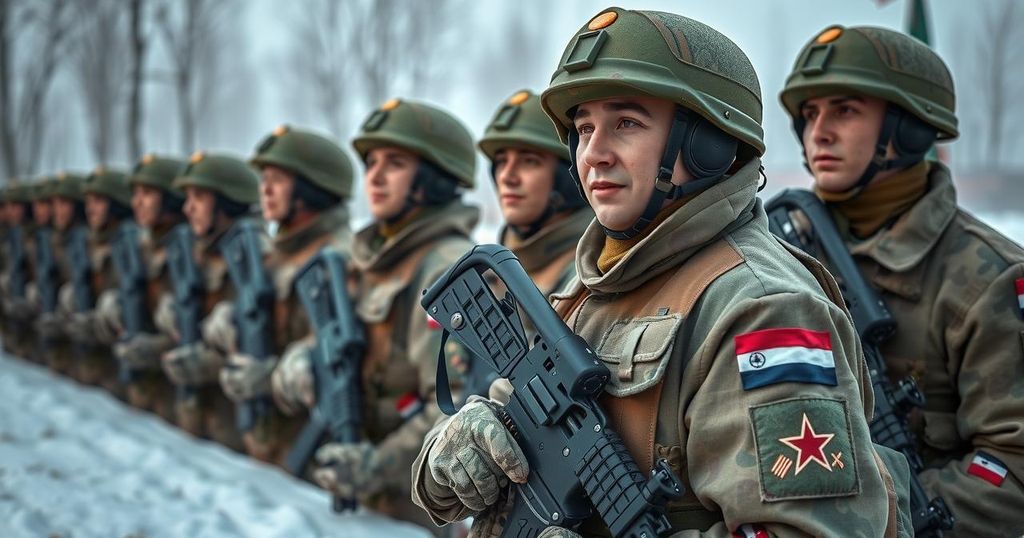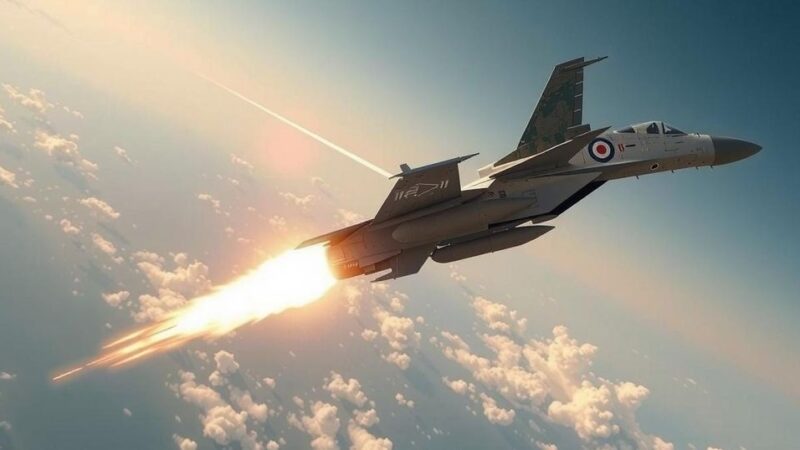North Korean soldiers are reportedly being used by Russian forces as bait to lure Ukrainian drones, leading to significant casualties among their ranks. German police are investigating suspected espionage linked to drones near military sites, while Sweden plans to test advanced drone technology. Diplomatic communications may soon occur between Donald Trump and Vladimir Putin, as both sides navigate the complexities of the ongoing war and its implications.
Recent developments in the Ukraine-Russia conflict reveal that North Korean soldiers are being utilized as bait by Russian troops to draw out drones deployed by Ukraine. The unsettling account of a North Korean soldier, detailed in a diary, indicates that these troops are ordered to position themselves dangerously close to Ukrainian drones. As they attract the drones’ attention, Russian soldiers are instructed to engage and shoot them down. This strategy highlights an alarming aspect of the conflict, where human lives are expendable in military tactics.
In other news, Germany’s police force is investigating suspected Russian espionage activities involving drones over military installations in Bavaria. This follows various sightings of drones near critical military sites in the area, raising concerns about potential surveillance and intelligence-gathering operations targeting German defense assets.
Sweden has announced plans to test new drone swarm technology, developed in collaboration with Saab, during upcoming military exercises. This technology aims to improve Sweden’s defense capabilities by allowing a coordinated effort among swarms of drones, enhancing operational effectiveness in reconnaissance and targeting.
As casualties rise, South Korea’s intelligence agency reports that approximately 300 North Korean soldiers have died and 2,700 have sustained injuries since their involvement in the conflict. It is understood that Kim Jong Un has dispatched around 11,000 troops to support Russian forces, raising questions about the tactics in place, as North Korean soldiers reportedly lack crucial knowledge of modern warfare.
Furthermore, tensions continue to escalate with reports that Russia has downed several Ukrainian drones aimed at the TurkStream gas pipeline. The Russian defense ministry has confirmed these incidents and highlighted the resilience of the pipeline’s infrastructure despite the ongoing conflict.
Amid these incidents, there are indications of potential diplomatic engagements, as Donald Trump’s incoming national security adviser, Mike Waltz, has suggested a conversation between President Trump and Vladimir Putin could take place soon. Waltz expressed that while the situation is dire, there must be acknowledgment of the realities on the ground to work towards a diplomatic resolution. President Zelensky of Ukraine also expressed willingness to negotiate the exchange of captured North Korean soldiers for Ukrainian prisoners of war, indicating an opportunity for dialogue amidst the ongoing strife and loss of life.
The long-standing conflict between Ukraine and Russia has escalated significantly since the invasion began, with numerous nations becoming embroiled either directly or indirectly in the situation. North Korea’s involvement, particularly in sending soldiers to support Russian military operations, adds a new layer of complexity to the war. This coalition has led to increased casualties and raises questions about the strategic tactics being employed by both sides. The use of soldiers as bait highlights the brutal and disparate nature of modern warfare, wherein human life is often set against advanced military technology. Additionally, ongoing espionage concerns and technological advancements among allied nations underscore the evolving nature of this conflict, as various parties seek to secure their interests and enhance their military capabilities amidst the chaos.
The latest updates on the Ukraine-Russia conflict reveal a multifaceted war dynamic, with reports of North Korean soldiers acting as bait for drone attacks, resulting in significant casualties. Concurrently, issues of espionage have emerged in Germany, and advancements in military technology are being tested by countries such as Sweden. As both sides continue to engage in conflict, the potential for diplomatic discussions is becoming a focal point, with leaders like Volodymyr Zelensky and former President Trump navigating complex negotiations. Ultimately, these developments reflect the grave realities of war and the urgent need for a resolution that respects the cost of human life.
Original Source: www.independent.co.uk







